Dental Implants
Regain your confidence with dental implants.
Replacing a missing tooth or teeth has never been easier.
If you have a single missing tooth, missing teeth or dentures, you may wish to consider dental implants to restore the full use of your teeth and to create a happy, confident smile.
Dental implants are a very successful and accepted treatment option to replace lost or missing teeth. A dental implant is essentially an artificial tooth root which can be used to support several types of dental prostheses, such as crowns, bridges or dentures. The implant fixture, or artificial root, is commonly connected to a supporting structure by way of a screw that then supports the replacement tooth/teeth. The implant is constructed of a strong, biocompatible material called titanium which becomes integrated with the jaw bone – a process called osseo-integration.
At Medland, your dental implant process is straightforward with little downtime involved. Your replacement tooth or teeth are created in our on-site laboratory by our advanced on-site technicians and positioned in place by your Medland dentist. This streamlined approach guarantees the perfection and precision of your dental implant.
We’ve been providing exceptional dentistry and placing dental implants for satisfied patients for more than 30 years.
Make an appointment and experience the Medland Difference.
- 07 3426 5777
Dental Implants FAQs
Below are some of the frequently asked questions we receive regarding dental implants at Medland Dental.
If you have any other questions please contact our friendly team.
People who have lost teeth through trauma, dental decay, failed root canal treatment, fractured teeth or have congenitally absent teeth are good candidates for dental implants. People who have loose, uncomfortable dentures or who would like to get rid of their dentures can benefit from implants. Those who find cleaning around dental bridges difficult can benefit from implants.
Adolescents and children who are still developing physically are not suitable patients for dental implants.
Implants are a flexible treatment option that can be used to replace one or multiple teeth. They often remove the need for bridges, partial or full dentures. They provide much more confidence, and in most cases the aesthetic result is superior to that of dentures and bridges. Implant dentistry can allow teeth to be replaced without the need to remove tooth structure from adjacent teeth. Dental implants are not susceptible to dental decay. They do not predispose your remaining teeth to dental decay and periodontal disease, as is the case with dentures. The implant helps to preserve the bone and gum tissue that can be lost after tooth loss.
Replacement of teeth with implants provides an improvement in speech and ability to chew foods and improves taste and temperature perception, self-confidence and overall quality of life. Generally, dental implants are easily maintained but good oral hygiene is crucial and implants must be reviewed regularly by your dental team.
Dental implants consist of two components.
The first component, called the implant, is a biocompatable titanium fixture which is placed below the tissue and forms the “root” of the tooth. The implant goes through a process called osseo-integration.
The secondary component, called the abutment, supports the final replacement tooth or teeth.
Dental implants that are cared for with regular brushing, flossing and dental check-ups will last for many years without any problems.
At Medland, we don’t just place your implant and implant-supported restorations, but partner with you in their care by providing you with ongoing reviews and most importantly, preventive care, so that your implants retain their health and functional qualities for as long as possible.
Many of our Medland patients have had their implants for over 30 years and they continue to be delighted with the results.
Yes. With a tooth implant, you can apply the same chewing and biting pressure as natural teeth without any discomfort or movement. Your teeth will look and feel great.
Your implant-supported teeth need a little more brushing and flossing than your own teeth. We highly recommend at least 6 monthly examinations and hygiene appointments so that we can monitor bite forces closely. Occasionally it may be necessary to adjust your bite to ensure that the implant-supported teeth are not being subjected to damaging bite forces. These can lead to significant complications such as screw loosening and bone loss around your implant. You’ll need to use floss and possibly interproximal brushes, such as Piksters™, to clean the implant and tooth surfaces.
If an occlusal splint or “night guard” is recommended in conjunction with your implant/s it is important to wear it as instructed. A splint assists in reducing “wear and tear” to your restoration and natural teeth and potentially further tooth loss from the destructive forces of bruxism – abnormal clenching and grinding. If a recommended splint is not worn then there could be a higher chance of damage to your implant-supported teeth and/or natural teeth, which can sometimes result in bone loss and fracture of implant fixtures or other componentry. It can necessitate replacement of bone, implants, implant screws, restorations or further complex dental treatment.
We recommend a radiograph (x-ray) is taken at 12 months from the completion of your treatment on your implant/s to ensure that bone support is within normal limits and no infection is present. Over the longer term, we recommend radiographic review on a two-yearly basis. It must be expected that the tooth/teeth supported by your implant/s will require some maintenance or replacement due to “wear and tear”. The time period is extremely variable and depends on many factors such as the materials used and the ongoing forces applied by neighbouring teeth.
Each of our Dentists are highly trained, skilled clinicians who prioritise the health and well-being of our patients.
Staying at the forefront of Brisbane’s dental industry, we are committed to utilising the latest technology and techniques to ensure that our patients can be proud of their healthy, beautiful smile.
If you have concerns about your smile or dental health and would like to learn more about treatment options that are available to you, please contact us on 07 3426 5777 or fill out the contact form and we’ll do everything we can to help.
Our welcoming and stylish dental practice is located at 66 Lambton St, Annerley, Brisbane QLD, Australia.
Providing a central and accessible location catering to patients Brisbane-wide.
Our staff are passionate about ensuring every patient leaves the clinic with a smile and with full confidence they are receiving the best dental care in Brisbane.
We invite you and your family to experience the Medland difference.
On-site laboratory
Care for anxious patients
Experienced Practitioners
60+ years history
#iprefermedland Read more about the Medland philosophy.


